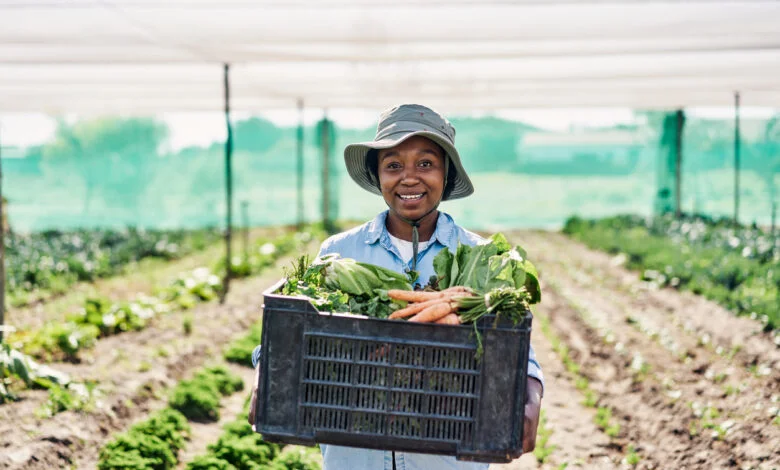For the growing world population, meeting the food requirements, sustaining economies, and viability for livelihoods are the most significant contributions of agriculture. Through novel technologies and newly adopted sustainable practices to face global challenges, the industry is evolving with the demand for skilled professionals who can lead and innovate as it develops. An agriculture learnership provides one such opportunity for an individual to gain experience, acquire specialized skills, and obtain an entry into a growing and thriving agricultural sector.
What is an Agriculture Learnership?
A learnership is a learning programme that is not prescriptive but combines theoretical learning with practical hands-on training inside a workplace. It delivers what agriculture learnerships are geared to provide participants with the skills required in different branches of farming, agribusiness, and other complementary sectors. Thus, the period of the program is generally between 12 and 24 months, where participants usually have both classroom learning and on-the-job training.
Learnerships are designed to make it possible for individuals to wind their way into the industry of agriculture while being qualified with an applicable industry-recognized qualification. Most practical experience includes everything from crop management to caring for livestock, soil conservation, machinery operation, and anything else.
Why Pursue an Agriculture Learnership?
On-the-Job Experience: One of the major contributing factors to an agriculture learnership is firsthand knowledge of how real farms operate. This could be related to crop production, animal husbandry, irrigation systems, or agronomy. Participants thus acquire practical wisdom from there on crucial experience much-needed for a successful career in agriculture. In essence, learnerships are a bridge from classroom knowledge to field descriptions of reality.
Qualifications Recognized by Industry: Completing an agriculture learnership usually means learners register for a qualification awarded by an applicable educational body or industry association. That certificate actions gives an edge in the job market and acts tangible evidence of the learner’s ability in specific fields in agriculture. This qualification can also position the individual further down the road for education or specialization.
Better Job Outcomes: Agriculture is a wide field that encompasses different career areas and thus learnerships increase an individual’s employability potential due to the practical competency they develop in skills that are sought after in the industry by different employers in farming, agro-processing, marketing, agronomy, and farm management. The agriculture industry prefers candidates who are equipped with hands-on experience and knowledge of modern farming practices.
Who Can Apply for an Agriculture Learnership?
Agriculture learnerships are usually opened to different people, but the major target is the youth and people wishing to change careers. The requirements differ based on the specific program, but in general, the following will apply:
Minimum Education: Some learnerships may require a candidate to hold at least a Grade 12 or equivalent qualification whereas others may consider applicants without such formal education qualifications, depending largely on the field and the program structure.
Passion for Agriculture: A veritable passion for agriculture, farming, or agricultural sciences is very significant. Candidates must demonstrate an honest willingness to work in agriculture and are keen to learn new ways of doing things and technologies.
Physical Stamina and Work Ethic: Agriculture is a job that, physically, has long working hours and, in some cases, strenuous working conditions. Learners should be prepared for being involved in practical activities whether it be fieldwork, handling livestock, or operating farm machinery.
Age: A lot of learnerships target youth within the range of 18 to 35 years, but there are some that go beyond this range, dependent upon the program.
Where to Look for Agriculture Learnerships?
There are several channels for locating agriculture learnerships:
Government Programs: In many countries, the agriculture departments or ministries provide learning opportunities in partnership with certain educational institutions or industry organizations.
Private Agricultural Companies: Larger agribusinesses tend to sponsor learnership programs for their fine crop and livestock production, food processing, and agri-tech learnerships.
Agricultural Colleges and Universities: Some educational institutions are in partnership with companies or run their learnership programs. These are generally geared toward giving students the theoretical knowledge and hands-on experiences to prepare them fully for careers in agriculture.
How to Apply
Online Platforms and Job Portals: Job portals, government websites, and specialized agriculture portals hold a long list of available learnerships. The AgriSETA (Agricultural Sector Education and Training Authority) in South Africa is an example of a website devoted to aiding in the finding of learnerships.
Conclusion
Agriculture learnerships are important gateways for anyone wishing to become established within the agricultural sector, and whether as a farmer, technician, agribusiness practitioner, or environmental specialist. With the adequate mix of practical training, recognized qualifications, and financial resources, agriculture learnerships pave a way toward an enriching and practical career pathway in agriculture at a stage of its own evolving identity. The demand for such skilled-hands would only be on a rise from here; hence, this is an exciting period to join the trade.
